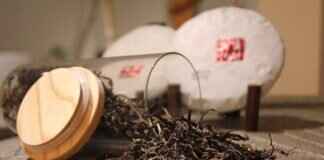The federal government is clashing with Maine over transgender athletes’ participation in girls’ sports, resulting in the potential loss of federal funding for the state. The U.S. Department of Education announced its decision to withhold federal funds from Maine after state officials declined to sign a Title IX resolution agreement that would exclude transgender athletes from competing in girls’ sports.
Maine’s Stand Against Exclusion
The dispute escalated when Maine officials informed the U.S. Department of Education’s Office of Civil Rights that they would not sign the resolution agreement, citing Title IX and Equal Protection Clause interpretations that support transgender girls’ and women’s participation in sports teams. This move prompted the Department of Education to involve the Department of Justice for further enforcement action, leading to potential consequences for noncompliance.
In a stern warning issued on March 31, federal officials gave the Maine Department of Education until April 11 to sign the resolution agreement before facing repercussions. Failure to comply could result in the termination of federal K-12 education funding, including grants, through an administrative proceeding and legal action.
Acting Assistant Secretary for Civil Rights, Craig Trainor, criticized Maine’s refusal to align with Title IX regulations, accusing state leaders of prioritizing an ideological agenda over student welfare. Trainor emphasized the Department’s commitment to upholding Title IX and ensuring a fair playing field for all athletes.
Political Tensions and Legal Battles
The clash between federal and state authorities intensified when Governor Janet Mills challenged President Donald Trump’s executive order banning transgender athletes from women’s sports. During a White House event, Trump and Mills engaged in a heated exchange, with Trump warning Mills of the consequences of noncompliance.
Mills’ defiant response, “See you in court,” underscored her commitment to defending Maine’s stance on transgender athletes and federal funding. Despite Trump’s threats, Mills remained steadfast in her resolve to protect Maine school children’s academic opportunities and resist federal intimidation.
The looming legal battle between Maine and the federal government reflects broader tensions surrounding transgender rights and sports policies. As the dispute unfolds, the implications for Title IX enforcement and state-federal relations remain at the forefront of the debate.
In conclusion, the clash over transgender athletes’ participation in girls’ sports highlights the complex interplay between federal regulations, state autonomy, and LGBTQ+ rights. Maine’s refusal to comply with federal mandates sets the stage for a legal showdown that could have far-reaching consequences for educational funding and athletic inclusion. As the controversy unfolds, the broader implications of this dispute underscore the ongoing challenges of balancing regulatory compliance with social progress.














